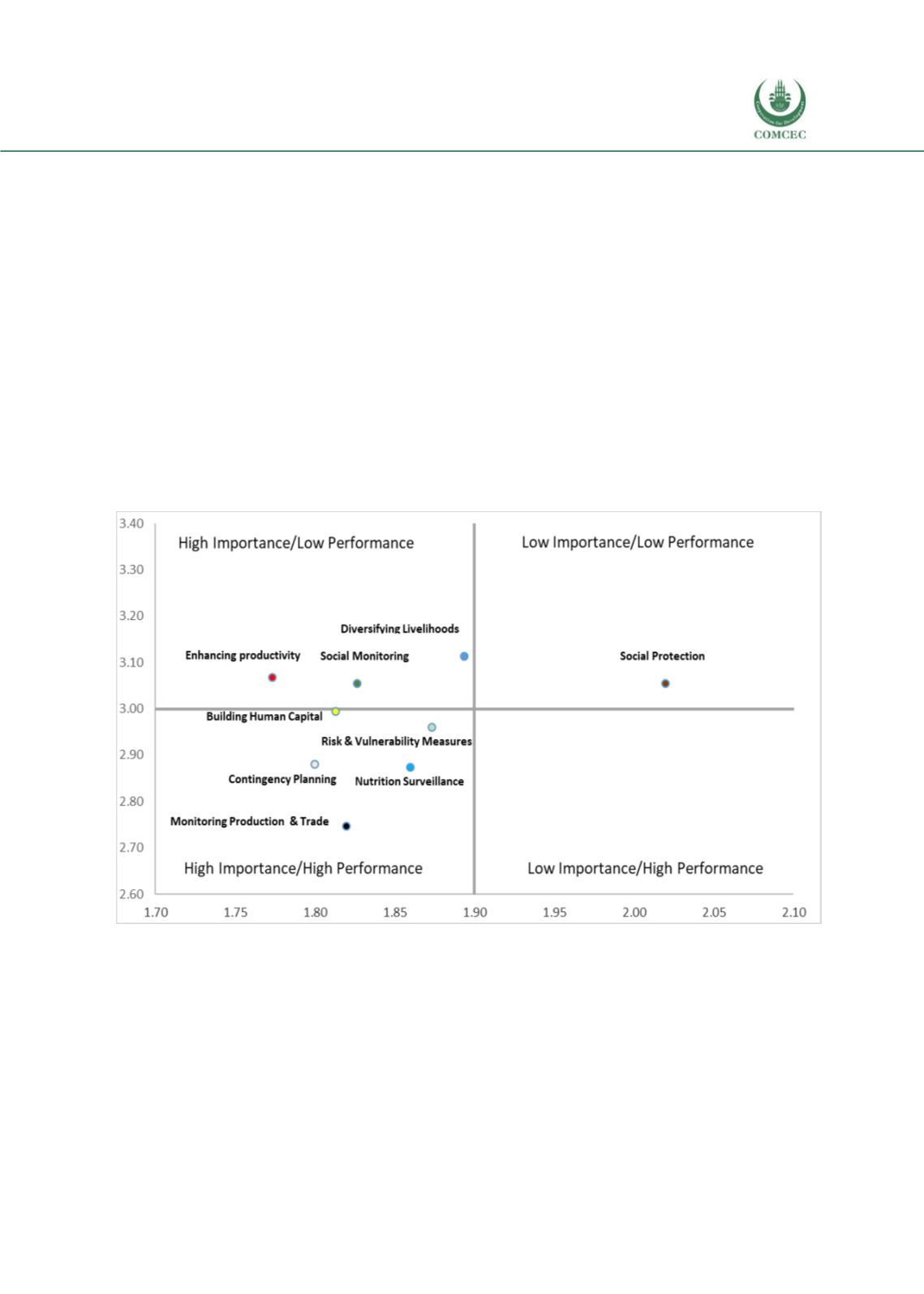

Increasing the Resilience of the Food Systems
In Islamic States in Face of Future Food Crises
131
As the following matrix illustrates, respondents believe their countries are performingwell in a
number of top priority areas including monitoring production and trade information which
received the highest performance rating, followed by contingency p lanning and nutrition
surveillance, risk and vulnerability measures, and building human capital.
The high priority areas where respondents believed their countries were underperforming
included enhancing productivity and social monitoring aswell as diversifying livelihoods which
had the lowest performance rating. Although as the graph illustrates social protection, which
was also rated as an area of underperformance, was perceived as an area of lower priority
compared to the other policy areas affecting food security, it was still rated in the high priority
range. When asked in a related question toratewhether overall theirgovernments’ performance
was satisfactory in enabling the development of a sustainable food production system in the
country through sound policies, only 37% of respondents cited they found their governments
performance satisfactory, and a quarter of the sample found it neither satisfactory nor
unsatisfactory, and the rest rated it as unsatisfactory.
Figure 35: Survey Findings - Food Security Policies Importance/Performance Matrix
Respondents were asked about their perception of the biggest opportunities to boost food
production in their countries. Grains topped the list (74%), followed by meat and value -added
processed food products (such as preparedmeals, snacks, etc.) (each 61%), poultry (59%), dairy
(51%), fish (48%), and finally oil and sugar (each 27%). They were also asked about the
initiatives they would you like to see prioritized at the OIC-level whereby countries work
together to strengthen food security. An OIC-wide agriculture investment fund came first with
61% of the respondents citing it, followed closely by an OIC-wide agribusiness investment fund
(59%), then an intra-OIC trade development support (51%) and finally OIC-wide financing
support mechanisms (47%).
















